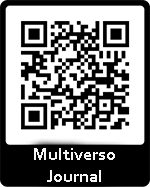Social control policy implemented by Nicolás Maduro's regime in Venezuela: 2013-2021
DOI:
https://doi.org/10.46502/issn.2792-3681/2023.5.1Keywords:
social control policy, informal social control, recent Venezuelan history, poverty, repression.Abstract
In the recent history of Venezuela, there are multiple mechanisms used to control the population, all of them have a juridical garb, and the line that divides social aid from social control is sometimes very tenuous, so it is essential to verify symbolically and materially the characteristics of each one of them, in its expressions of enabling laws, censorship, repression, poverty, ignorance, food and public services, all of which configure an informal social control that theoretically and ideologically are detached from traditional approaches, therefore, it is also necessary to establish its relationship with legal security and human rights. In this sense, the objective of the research is to describe the imprint of the social control policy implemented in Venezuela, from 2013 to 2021. Methodologically, use was made of the documentary research technique and hermeneutics. The information gathered allows concluding that there is an imbalance of power, since there is no separation between the public powers proper to the rule of law, so that the institutions and organs of the State -in their totality- respond to the guidelines of the national executive and endorse its policies of social control.
References
Acceso a la Justicia (28 de julio de 2022). Elecciones en autocracia: el caso venezolano 2017-2021: https://accesoalajusticia.org/elecciones-autocracia-caso-venezolano-2017-2021/
Acosta, Y. (2018). Sufrimiento psicosocial del siglo XXI: Venezuela y la Revolución. Revista de Investigación Psicológica, 19, 111-134.
Amnistía Internacional. (2022). Correlación entre las estigmatizaciones y las detenciones arbitrarias por motivos políticos. Reino Unido: Amnesty International Ltd.
Asamblea Nacional (2015). Ley que autoriza al presidente de la República para dictar Decretos con Rango, Valor y Fuerza de Ley en las materias que se delegan para la Garantía Reforzada de los Derechos de Soberanía y Protección del Pueblo Venezolano y el Orden Constitucional de la República. Gaceta Oficial Extraordinaria Nº 6.178 de fecha 15 de marzo de 2015.
Asamblea Nacional Constituyente (1999). Constitución de la República Bolivariana de Venezuela. Caracas. Gaceta Oficial Extraordinaria, Nro. 36.860 de fecha 30 de diciembre de 1999.
Asamblea Nacional. (2013). Ley que autoriza al presidente de la República para dictar Decretos con Rango, Valor y Fuerza de Ley en las materias que se delegan. Gaceta Oficial Extraordinaria Nº 36.860 y Nº 6.112, de fecha 19 de noviembre de 2013.
Aula Abierta (21 de enero de 2022). Venezuela tendría universidades dignas sin el excesivo gasto militar. https://acortar.link/DLPJ3S
Cartay, R., & Dávila, L. R. (2020). Anatomía política del hambre: dominación y control social en Venezuela. Agroalimentaria, 26(50), 125-146.
Castel, R. (2014). Los riesgos de exclusión social en un contexto de incertidumbre. Revista Internacional de Sociología, 72(extra 1), 15-24.
Contreras, B. (02 de marzo de 2021). Maduro ordena a su Asamblea Nacional impulsar «paquetazo» de leyes. https://acortar.link/bDYkPW
Delgado, A. (2015). Nuevas (y viejas) formas de censura de la información en internet. Cuadernos de Periodistas, 29. https://acortar.link/AQVH6u
Espronceda Rodríguez, W. (2017). La oposición venezolana: Entre elecciones y desestabilización. Universidad de La Habana, 283, 29-43.
Marcano Domínguez, A. (2018). Censura del periodismo en Venezuela. Impacto Científico, 13(1), 59-69.
Mondino, L. (2020). Autopsia a la democracia venezolana. Tres momentos que llevaron a la muerte del orden democrático. Agenda Internacional, XXVII(38), 241-256.
Observatorio Venezolano de Conflictividad Social (02 de agosto de 2017). Venezuela: 6.729 protestas y 163 fallecidos desde el 1 de abril de 2017. https://acortar.link/LOa0Fv
Ordoñez Valencia, H., & Trelles Vicuña, D. (2019). Control social en la participación ciudadana: Una visión desde los servicios públicos locales. Revista de Ciencias Sociales, 25(04), 175-185. https://doi.org/10.31876/rcs.v25i4.30525
Osorio Bohórquez, L. (2019). El socialismo totalitario en Venezuela: Pobreza y control social. Iberoforum. Revista de Ciencias Sociales de la Universidad Iberoamericana. Año XIV(28), 126-158.
Partido Socialista Unido de Venezuela. (01 de septiembre de 2022). Presidente Maduro ratifica compromiso para mejorar servicios públicos del país. https://acortar.link/nUcUi0
Programa Venezolano de Educación Acción en Derechos Humanos. (11 de septiembre de 2021). La pobreza en Venezuela llega al 94,5% de la población ENCOVI 2021. https://acortar.link/MlcNEi
Programa Venezolano de Educación Acción en Derechos Humanos. (31 de marzo de 2022). Con la comida no se juega: Graves violaciones al derecho humano a la alimentación en Venezuela. https://acortar.link/Y1pVyb
Reporteros Sin Fronteras. (12 de marzo de 2019). Censura en Venezuela ante la crisis política. https://acortar.link/gRMaI9
Reverón Boulton, C. (2016). Sobre la Ley Habilitante Antiimperialista para La Paz. En: BEDA. Boletín Electrónico de Derecho Administrativo de la Universidad Católica Andrés Bello, 01, 93-106. https://acortar.link/yQ6ym6
Silva Aranguren, A., & Sira Santana, G. (2015). “Decretos Leyes dictados por el presidente de la República, con base en Ley Habilitante, en el año 2015”. Revista de Derecho Público de Venezuela, (143-144), 191-204.
Toro Silva, C. (2019). Entre el orden, el vínculo, el conflicto y el poder. Aproximación histórica al concepto de control social y análisis de sus usos historiográficos. TRASHUMANTE. Revista Americana de Historia Social, 14, 174-194.
Published
How to Cite
Issue
Section
License
Copyright (c) 2023 Jesús Enrique Párraga Meléndez

This work is licensed under a Creative Commons Attribution 4.0 International License.
The authors who publish in this journal agree to the following terms:
The authors retain copyright and guarantee the journal the right to be the first publication where the article is presented, which is published under a Creative Commons Attribution License, which allows others to share the work prior to acknowledgment of the authorship of the article. work and initial publication in this journal.
Authors may separately enter into additional agreements for non-exclusive distribution of the version of the work published in the journal (for example, placing it in an institutional repository or publishing it in a book), with an acknowledgment of its initial publication in this journal.



















